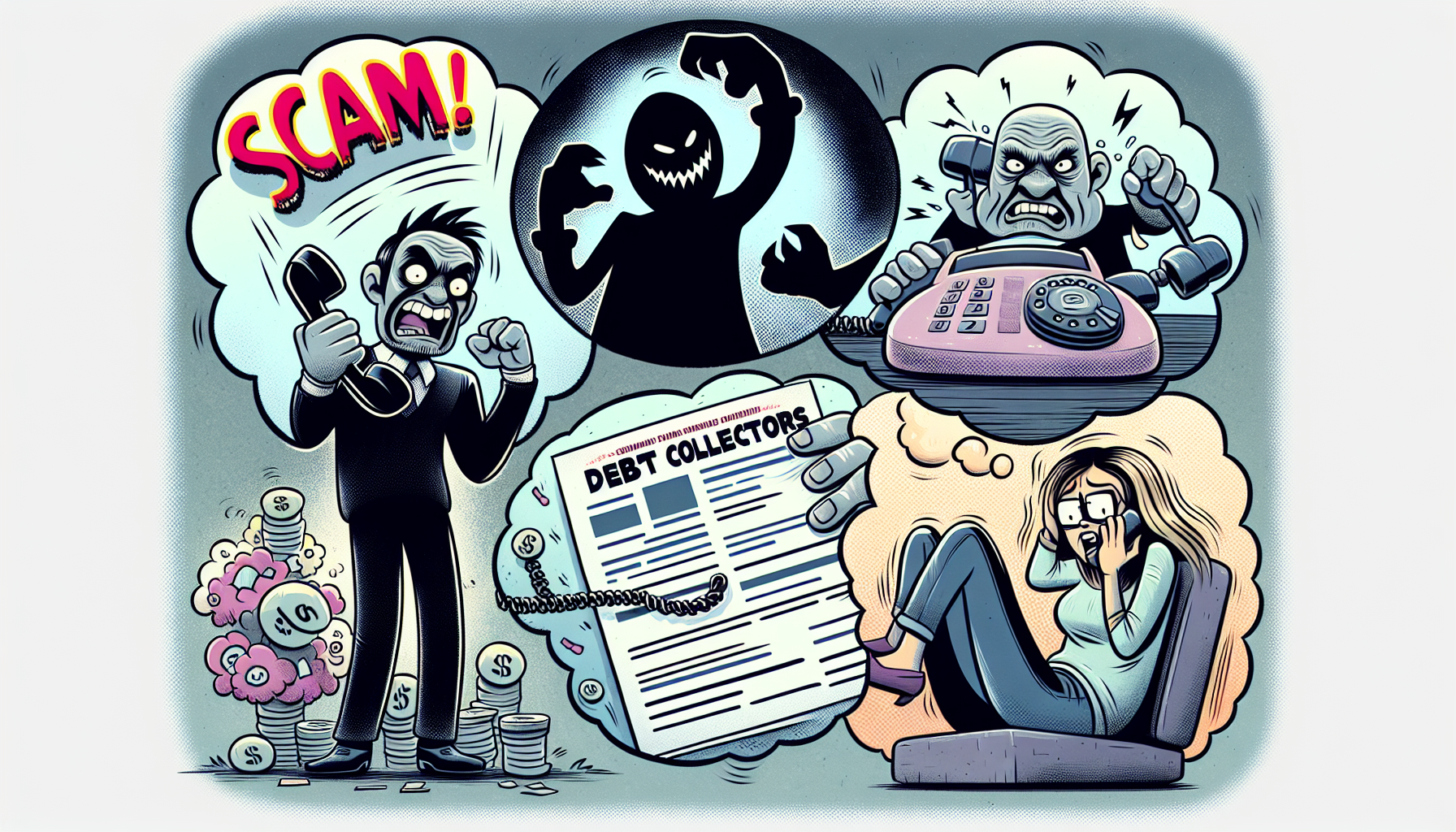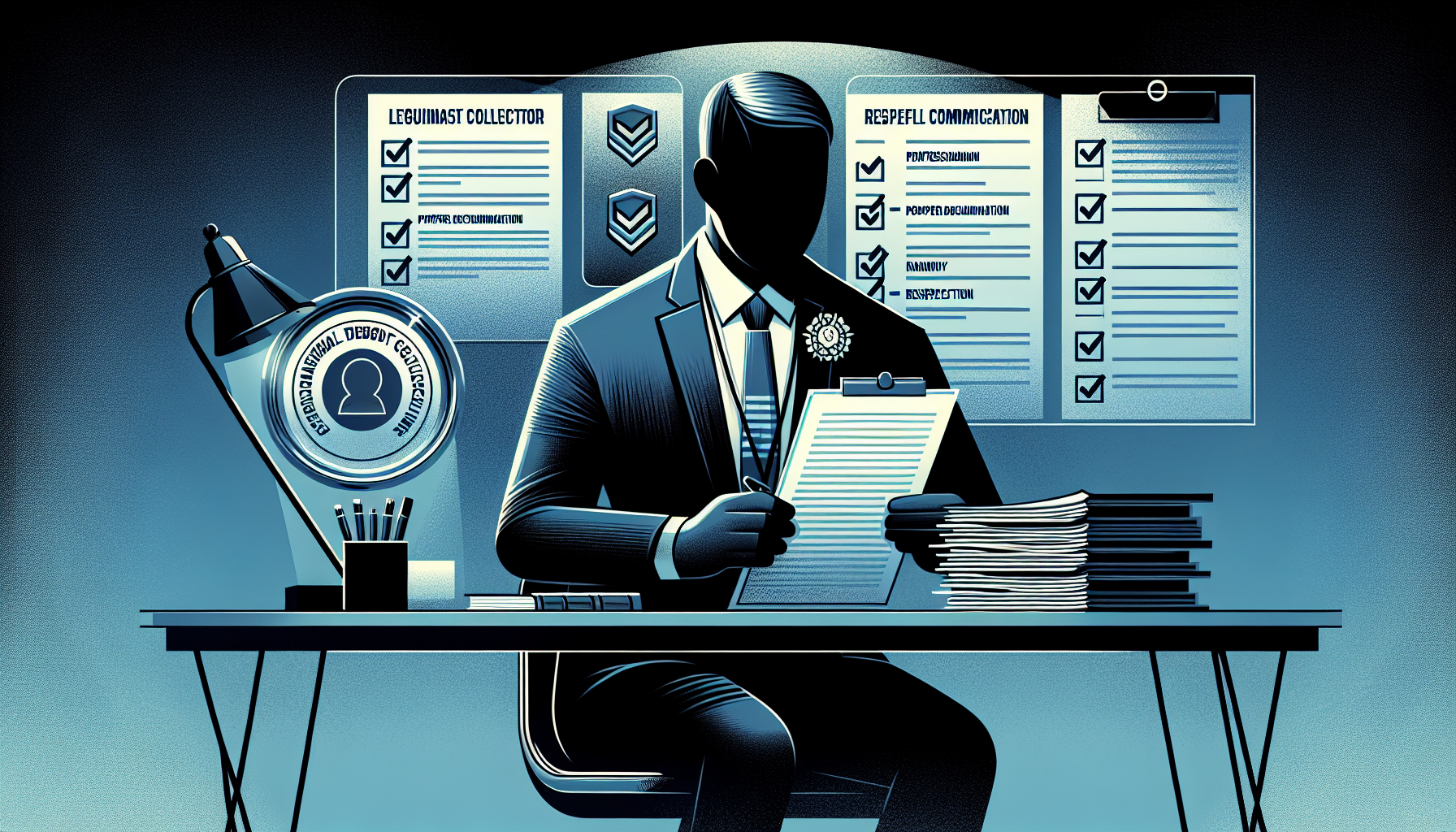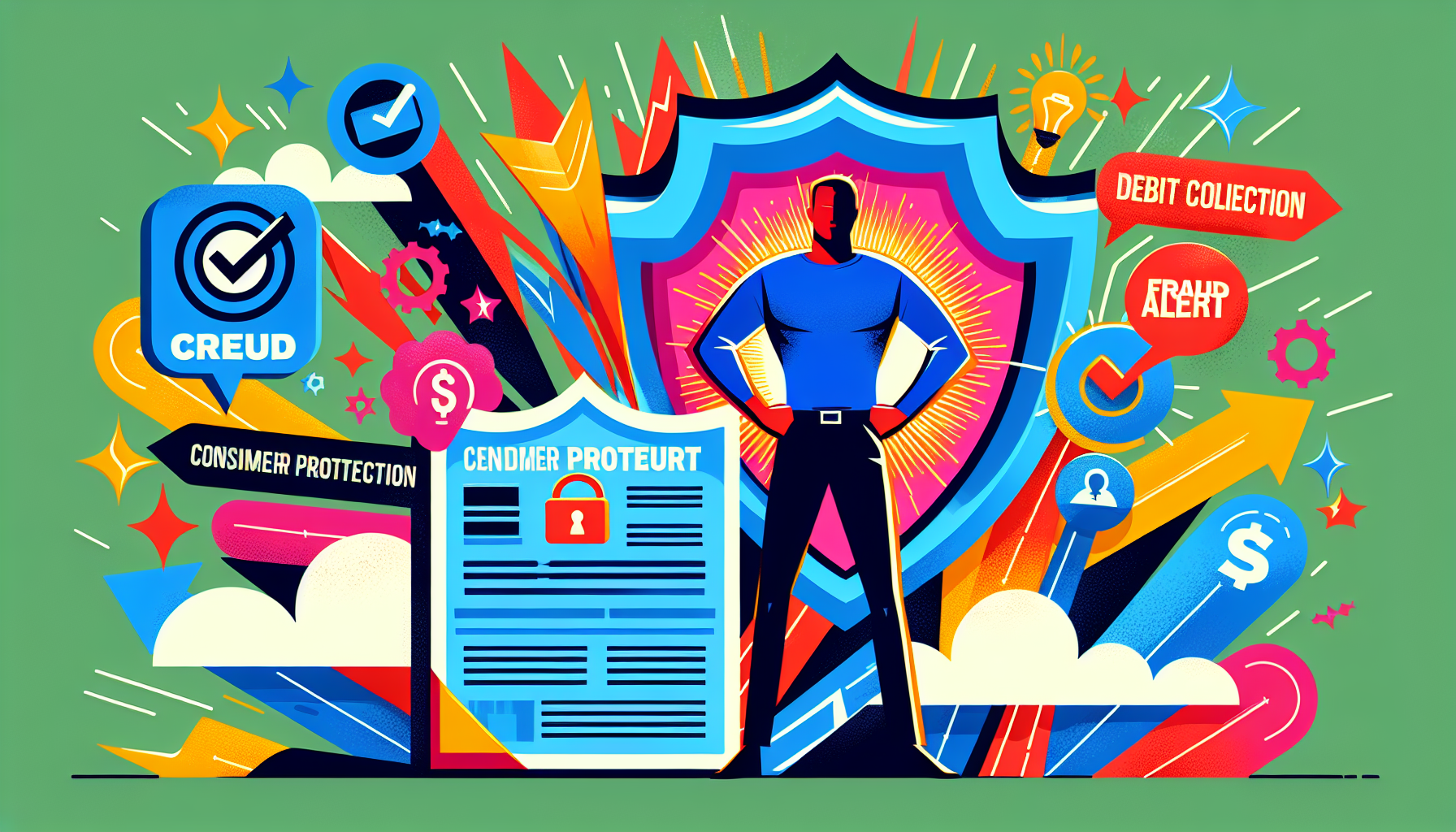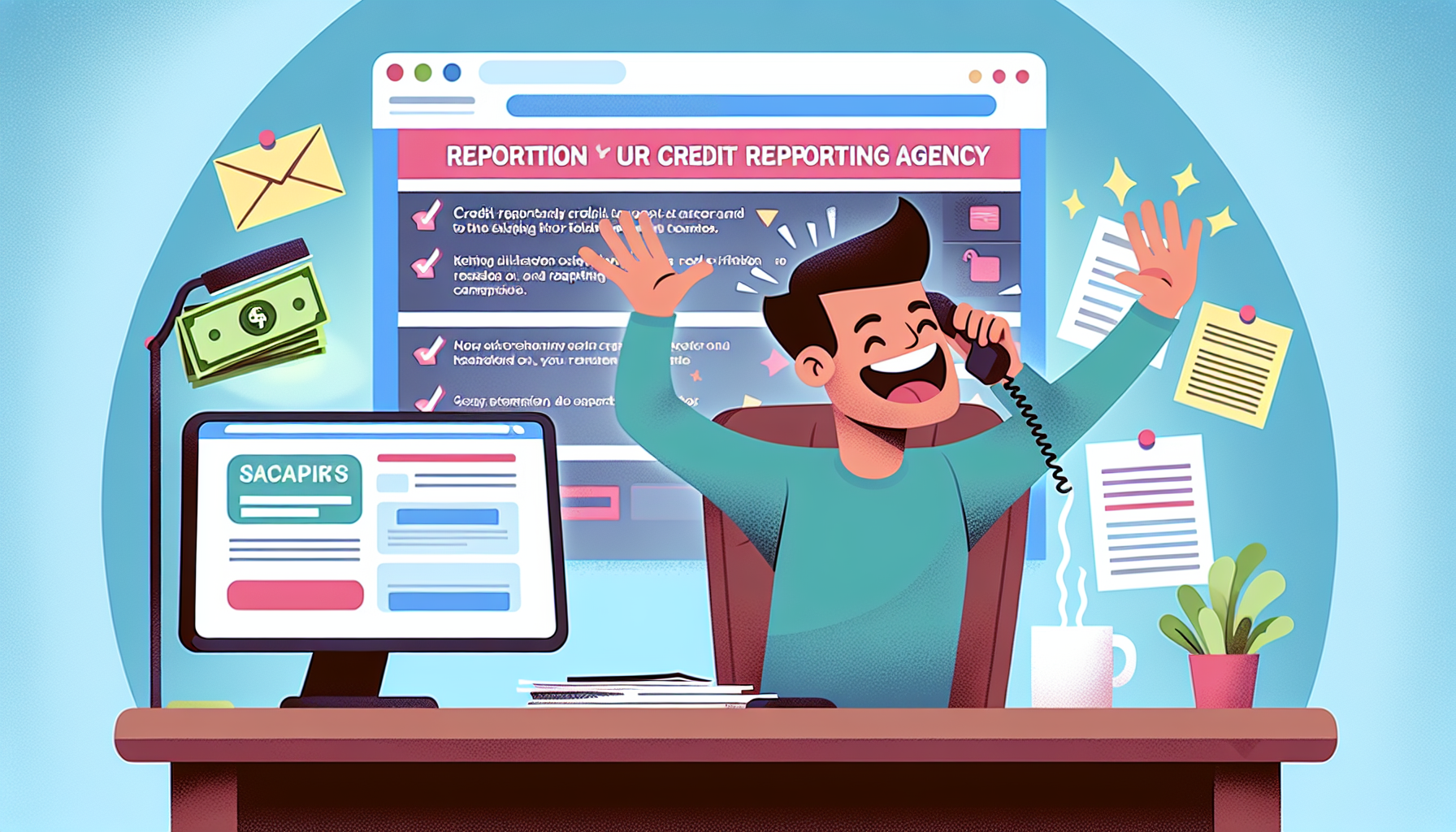Concerned about scam debt collectors? This article will show you how to identify and avoid them, ensuring you don’t fall prey to their deceitful tactics.
Key Takeaways
- Beware of red flags such as unrecognized debts, unverifiable contact information, and intimidation tactics that indicate potential scam debt collectors.
- Legitimate debt collectors must provide written notice of the debt, and consumers have the right to verify the debt with the original creditor before making any payments.
- Protect yourself by monitoring your credit report, maintaining detailed records of interactions with collectors, and reporting suspicious activities to the proper authorities.
Understanding Scam Debt Collectors

Scam debt collectors are cunning and ruthless, employing a variety of scare tactics to pressure individuals into making quick payments. These scammers often use lies, intimidation, and harassment as techniques to compel their victims to pay. They may contact you through phone calls, text messages, emails, or even mail, claiming that you owe debts you might not recognize. If you receive a debt collection call, it’s important to verify the legitimacy of the debt collector claims, especially to avoid falling victim to debt collection scammers.
Recognizing the warning signs of a potential scam can greatly reduce the risk of falling victim to these deceitful practices. Being aware of the signs and tactics used by scammers empowers you to take precautionary measures early on.
Recognizing fake debts
One of the first red flags of a debt collection scam is the claim that you owe a debt you don’t recognize. Scammers might assert you owe fake debts, such as those that are canceled, expired, or past the statute of limitations. They often target specific types of debts, including payday loans and alleged IRS tax debts. If you don’t recognize a debt, check your credit report to see if it is listed. However, the absence of a debt on your credit report doesn’t necessarily mean it is invalid.
Scammers frequently use personal information, such as Social Security numbers and addresses, to sound convincing. They may request payment in untraceable forms like gift cards or wire transfers, which is a major red flag. Before making any payments, always confirm the debt is valid and truly belongs to you. Legitimate debt collectors should already have essential details about the debt, such as the amount owed and your personal information. If a debt collector won’t provide the required information to verify the debt, be cautious. This behavior can be a red flag.
Always verify the legitimacy of the debt collector and the debt itself. If a collector cannot provide detailed information or pressures you to pay immediately without verification, it’s likely a scam.
Suspicious contact information
Another telltale sign of a scam debt collector is suspicious or unverifiable contact information. When you receive a call or message from a debt collector, request their full contact details, including their name, company name, and phone number. If the information provided cannot be verified, it’s advisable not to respond until the authenticity is confirmed. Scammers often use fake callback numbers that don’t match the provided details, which is a strong indicator of fraudulent activity.
Legitimate debt collectors will have verifiable contact information that links back to a reputable collection agency. Research the contact details provided to ensure they are associated with a legitimate organization. If the debt collector’s information does not check out, avoid any further communication.
Threatening behavior
Legitimate debt collectors are prohibited by law from using intimidation tactics or making false threats to collect a debt. Scam debt collectors often resort to illegal threats, such as claiming you could go to jail for not paying. They may also threaten to disclose your debts to third parties or use other forms of intimidation to scare you into making a payment.
Major red flags include threats of jail time or other drastic legal actions that legitimate debt collectors cannot enforce. If a debt collector threatens you in any way, it’s a strong indication that you are dealing with a scammer.
Always remember that you have legal protections against such harassment and that legitimate debt collectors must adhere to fair debt collection practices.
Identifying Legitimate Debt Collectors

Distinguishing between legitimate and fake debt collectors can be challenging, especially since scammers can sound very convincing and may possess enough details about your debts to manipulate you. However, there are specific steps you can take to verify the legitimacy of a debt collector.
Legitimate debt collectors act on behalf of the lender to collect owed money. They must disclose their identity and provide information about the debt upon request. Ask for the collector’s name, company name, contact number, and address.
Researching the contact information provided by the debt collector can help you determine if it is linked to a reputable collection agency. Ensure that the debt collector is legitimate before providing any personal or financial information.
Written notice requirement
Debt collectors are legally required to provide written notice to consumers within five days of their initial contact. This written notice must include details about the debt, such as the amount owed and the name of the creditor. The written notice is crucial for consumers to verify the legitimacy of the debt and their rights to dispute it.
If a debt collector fails to provide a written notice within the specified time frame, it raises a red flag about their legitimacy. Always insist on receiving a written notice and use it to verify the debt with the original creditor.
Verification from original creditor
To confirm the legitimacy of a debt, always reach out to the original creditor directly. The Fair Debt Collection Practices Act (FDCPA) grants consumers the right to dispute a debt and requires debt collectors to provide verification upon request. This step ensures that you are dealing with a legitimate debt collector and that the debt is valid.
Contacting the original creditor helps you cross-check the information provided by the debt collector. If the original creditor cannot verify the debt, it is likely a scam. This verification process is an essential step in protecting yourself from fraudulent debt collection practices.
Standard payment methods
Legitimate debt collectors typically accept standard payment methods that can be tracked and verified, such as checks or traditional credit cards. If a debt collector insists on unconventional payment methods, such as gift cards or wire transfers, it is a strong indication of potential fraud.
Be cautious if a debt collector pressures you to pay immediately using non-standard payment methods. Always opt for payment methods that provide a paper trail and can be easily traced back to the collector if you owe money.
Protecting Yourself from Debt Collection Scams

Protecting yourself from debt collection scams involves taking proactive steps to safeguard your financial information and verify the legitimacy of any debt collector that contacts you. In 2023 alone, consumers reported over $10 billion lost to fraud, highlighting the scale of the problem. Reporting scams to the Federal Trade Commission (FTC) and your state attorney general is crucial for consumer protection.
Following simple steps such as verifying debts, disputing errors, and seeking help from credit repair companies can significantly reduce the risk of falling victim to debt collection scams.
Monitoring your credit report
One of the most effective ways to protect yourself from debt collection scams is by regularly monitoring your credit report. You can obtain a free credit report every 12 months to ensure you are aware of your financial standing. Monitoring your credit reports allows you to identify any potential discrepancies or unauthorized debts.
If you suspect a debt collector is a scammer, contact the original creditor to validate the debt. If personal information was shared with a scam collector, placing a credit freeze can help prevent identity theft. Additionally, placing a fraud alert on your credit report requires creditors to verify your identity before issuing new credit.
Keeping detailed records
Keeping detailed records of all communications with debt collectors protects you from fake debts and unscrupulous collectors. Consumers must send a written request to dispute a debt within 30 days of receiving the initial notice from the debt collector.
Maintaining a paper trail helps verify claims made by debt collectors and provides evidence if you need to file a complaint or take legal action. Document the dates, times, and content of all interactions with debt collectors.
Reporting suspicious activity
If you suspect criminal activity related to a debt collector, it is crucial to report it to local law enforcement. Additionally, if a fake debt collector contacts you or if a debt collector is lying or threatening you, file a complaint with the Department of Financial Protection and Innovation (DFPI).
Submit a complaint to the Federal Trade Commission or contact your state Attorney General’s office if you receive a suspicious call from a debt collector. Reporting suspicious activity protects you and helps safeguard others from scam debt collectors.
What to Do If You Fall Victim to a Scam Debt Collector

If you fall victim to a scam debt collector, taking immediate action is essential. First, contact local law enforcement to report the criminal activity. After reporting to law enforcement, file official complaints with relevant consumer protection agencies.
A comprehensive record of all interactions with debt collectors can enhance the strength of your complaints and aid in any legal actions you may pursue.
Contacting credit reporting agencies
If you are targeted by fake debt collectors, alerting major consumer reporting companies is crucial. If you have provided sensitive information to a scam debt collector, alert credit reporting agencies to protect yourself.
Requesting a fraud alert on your account helps protect your credit by requiring creditors to verify your identity before issuing new credit.
Seeking legal advice
Consult a legal expert for guidance on potential ramifications and to secure your interests after encountering a scam. A legal professional can help you understand your rights and potential remedies against scammers.
Filing a complaint
Filing a complaint is crucial for helping consumer protection agencies tackle scam debt collectors and protect other consumers. Report suspicious activity, including harassment or illegal practices by debt collectors, to authorities such as the Federal Trade Commission and local law enforcement.
Understanding your rights under the Fair Debt Collection Practices Act (FDCPA) provides protection against abusive debt collection practices.
Know Your Rights Under the Fair Debt Collection Practices Act (FDCPA)

Consumers have rights that protect them from unfair practices. Legitimate debt collectors must comply with the law and cannot lie or threaten with actions they can’t take.
The FDCPA aims to eliminate abusive practices in debt collection and protect consumers’ rights. Debt collectors must send written notice within five days of initial contact, providing the name of the creditor and the amount owed.
Prohibited practices
Debt collectors are prohibited from misrepresenting the debt, falsely claiming to be a lawyer, or using obscene or profane language. The FDCPA aims to eliminate abusive practices in debt collection and protect consumers’ rights.
Examples of illegal practices include making false claims about the debt amount or the legal consequences of non-payment.
Right to dispute a debt
Consumers have the right to request validation of a debt within 30 days of being contacted by a collector. Requesting verification of a debt stops collection efforts until the debt is validated.
This right ensures that consumers are not harassed for debts that may not belong to them or are valid debt.
Ceasing communication requests
Consumers can request debt collectors to cease communication by sending a valid written request. To ensure the request is received and acknowledged, send the letter by certified mail with a return receipt. After receiving a cease contact request, debt collectors may only contact the consumer to confirm they will stop contacting them or to inform about legal actions.
This provision is crucial for consumers who feel harassed or overwhelmed by persistent debt collection calls and messages. Debt collectors are prohibited from contacting consumers for any reason other than to confirm the cessation of communication or to notify them of legal actions.
Summary
Understanding and protecting yourself from debt collection scams is vital in today’s world, where fraudsters are becoming increasingly sophisticated. By learning to recognize the signs of scam debt collectors, such as fake debts, suspicious contact information, and threatening behavior, you can take proactive steps to safeguard your financial well-being. Legitimate debt collectors must adhere to the law, provide written notices, verify debts with original creditors, and use standard payment methods.
If you suspect or fall victim to a scam, it’s crucial to monitor your credit report, keep detailed records, and report any suspicious activity to the appropriate authorities. Knowing your rights under the Fair Debt Collection Practices Act (FDCPA) empowers you to stand up against abusive practices and protect yourself from fraudulent debt collection schemes. Stay vigilant, informed, and proactive in defending your financial health.
Frequently Asked Questions
How can I tell if a debt collector is legitimate?** **?
To determine if a debt collector is legitimate, verify their contact information and request a written notice of the debt. Additionally, confirm the debt with the original creditor to ensure its authenticity.
What should I do if I receive a call from a debt collector claiming I owe a debt I don’t recognize?** **?
If you receive a call from a debt collector for a debt you don’t recognize, first check your credit report and contact the original creditor for verification. If the debt cannot be confirmed, it could be a scam.
What are my rights under the Fair Debt Collection Practices Act (FDCPA)?** **?
Under the Fair Debt Collection Practices Act (FDCPA), you have the right to be free from abusive debt collection practices, which include threats, harassment, and false claims. Additionally, you can dispute a debt and request that collectors stop contacting you.
How can I protect myself from debt collection scams?** **?
To protect yourself from debt collection scams, regularly monitor your credit report and keep detailed records of all communications with debt collectors. Always verify the legitimacy of any collector and avoid sharing personal financial information with unverified sources.
What steps should I take if I fall victim to a scam debt collector?** **?
If you fall victim to a scam debt collector, immediately contact local law enforcement and alert credit reporting agencies. It’s also crucial to seek legal advice and file complaints with consumer protection -agencies while documenting all interactions for your records.
Call Consumer Rights Law Firm PLLC now for free assistance at 877-700-5790







